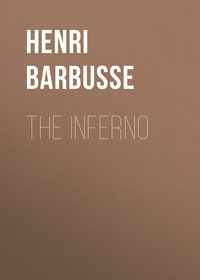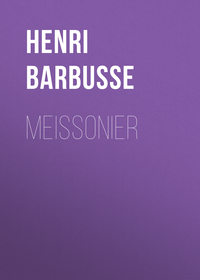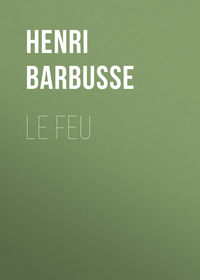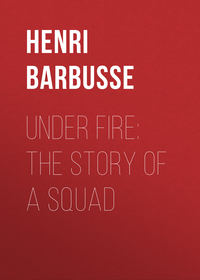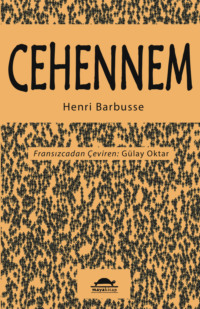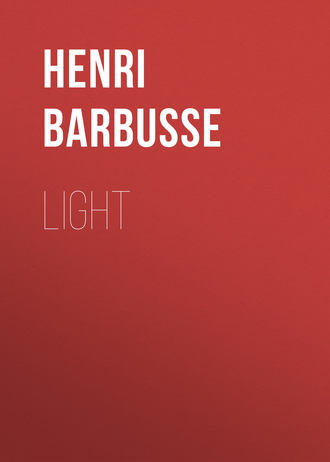 полная версия
полная версияLight
The earth and the sky—but I do not see God. I see everywhere, everywhere, God's absence. My gaze goes through space and returns, forsaken. And I have never seen Him, and He is nowhere, nowhere, nowhere.
No one ever saw Him. I know—I always knew, for that matter!—that there is no proof of God's existence, and that you must find, first of all, believe in it if you want to prove it. Where does He show Himself? What does He save? What tortures of the heart, what disasters does He turn aside from all and each in the ruin of hearts? Where have we known or handled or embraced anything but His name? God's absence surrounds infinitely and even actually each kneeling suppliant, athirst for some humble personal miracle, and each seeker who bends over his papers as he watches for proofs like a creator; it surrounds the spiteful antagonism of all religions, armed against each other, enormous and bloody. God's absence rises like the sky over the agonizing conflicts between good and evil, over the trembling heedfulness of the upright, over the immensity—still haunting me—of the cemeteries of agony, the charnel heaps of innocent soldiers, the heavy cries of the shipwrecked. Absence! Absence! In the hundred thousand years that life has tried to delay death there has been nothing on earth more fruitless than man's cries to divinity, nothing which gives so perfect an idea of silence.
How does it come about that I have lasted till now without understanding that I did not see God? I believed because they had told me to believe. It seems to me that I am able to believe something no longer because they command me to, and I feel myself set free.
I lean on the stones of the low wall, at the spot where I leaned of old, in the time when I thought I was some one and knew something.
My looks fall on the families and the single figures which are hurrying towards the black hole of the church porch, towards the gloom of the nave, where one is enlaced in incense, where wheels of light and angels of color hover under the vaults which contain a little of the great emptiness of the heavens.
I seem to stoop nearer to those people, and I get glimpses of certain profundities among the fleeting pictures which my sight lends me. I seem to have stopped, at random, in front of the richness of a single being. I think of the "humble, quiet lives," and it appears to me within a few words, and that in what they call a "quiet, lowly life," there are immense expectations and waitings and weariness.
I understand why they want to believe in God, and consequently why they do believe in Him, since faith comes at will.
I remember, while I lean on this wall and listen, that one day in the past not far from here, a lowly woman raised her voice and said, "That woman does not believe in God! It's because she has no children, or else because they've never been ill."
And I remember, too, without being able to picture them to myself, all the voices I have heard saying, "It would be too unjust, if there were no God!"
There is no other proof of God's existence than the need we have of Him. God is not God—He is the name of all that we lack. He is our dream, carried to the sky. God is a prayer, He is not some one.
They put all His kind actions into the eternal future, they hide them in the unknown. Their agonizing dues they drown in distances which outdistance them; they cancel His contradictions in inaccessible uncertainty. No matter; they believe in the idol made of a word.
And I? I have awaked out of religion, since it was a dream. It had to be that one morning my eyes would end by opening and seeing nothing more of it.
I do not see God, but I see the church and I see the priests. Another ceremony is unfolding just now, in another direction—up at the castle, a Mass of St. Hubert. Leaning on my elbows the spectacle absorbs me.
These ministers of the cult, blessing this pack of hounds, these guns and hunting knives, officiating in lace and pomp side by side with these wealthy people got up as warlike sportsmen, women and men alike, on the great steps of a castle and facing a crowd kept aloof by ropes,—this spectacle defines, more glaringly than any words whatever can, the distance which separates the churches of to-day from Christ's teaching, and points to all the gilded putridity which has accumulated on those pure defaced beginnings. And what is here is everywhere; what is little is great.
The parsons, the powerful—all always joined together. Ah, certainty is rising to the heart of my conscience. Religions destroy themselves spiritually because they are many. They destroy whatever leans upon their fables. But their directors, they who are the strength of the idol, impose it. They decree authority; they hide the light. They are men, defending their interests as men; they are rulers defending their sway.
It has to be! You shall not know! A terrible memory shudders through me; and I catch a confused glimpse of people who, for the needs of their common cause, uphold, with their promises and thunder, the mad unhappiness which lies heavy on the multitudes.
* * * * * *Footsteps are climbing towards me. Marie appears, dressed in gray. She comes to look for me. In the distance I saw that her cheeks were brightened and rejuvenated by the wind. Close by I see that her eyelids are worn, like silk. She finds me sunk in reflection. She looks at me, like a frail and frightened mother; and this solicitude which she brings me is enough by itself to calm and comfort me.
I point out to her the dressed-up commotion below us, and make some bitter remark on the folly of these people who vainly gather in the church, and go to pray there, to talk all alone. Some of them believe; and the rest say to them, "I do the same as you."
Marie does not argue the basis of religion. "Ah," she says, "I've never thought clearly about it, never. They've always spoken of God to me, and I've always believed in Him. But—I don't know. I only know one thing," she adds, her blue eyes looking at me, "and that is that there must be delusion. The people must have religion, so as to put up with the hardships of life, the sacrifices–"
She goes on again at once, more emphatically, "There must be religion for the unhappy, so that they won't give way. It may be foolishness, but if you take that away from them, what have they left?"
The gentle woman—the normal woman of settled habits—whom I had left here repeats, "There must be illusion." She sticks to this idea, she insists, she is taking the side of the unhappy. Perhaps she talks like that for her own sake, and perhaps only because she is compassionate for me.
I said in vain, "No—there must never be delusion, never fallacies. There should be no more lies. We shall not know then where we're going."
She persists and makes signs of dissent.
I say no more, tired. But I do not lower my gaze before the all-powerful surroundings of circumstance. My eyes are pitiless, and cannot help descrying the false God and the false priests everywhere.
We go down the footpath and return in silence. But it seems to me that the rule of evil is hidden in easy security among the illusions which they heap up over us. I am nothing; I am no more than I was before, but I am applying my hunger for the truth. I tell myself again that there is no supernatural power, that nothing has fallen from the sky; that everything is within us and in our hands. And in the inspiration of that faith my eyes embrace the magnificence of the empty sky, the abounding desert of the earth, the Paradise of the Possible.
We pass along the base of the church. Marie says to me—as if nothing had just been said, "Look how the poor church was damaged by a bomb from an aeroplane—all one side of the steeple gone. The good old vicar was quite ill about it. As soon as he got up he did nothing else but try to raise money to have his dear steeple built up again; and he got it."
People are revolving round the building and measuring its yawning mutilation with their eyes. My thoughts turn to all these passers-by and to all those who will pass by, whom I shall not see, and to other wounded steeples. The most beautiful of all voices echoes within me, and I would fain make use of it for this entreaty, "Build not the churches again! You who will come after us, you who, in the sharp distinctness of the ended deluge will perhaps be able to see the order of things more clearly, don't build the churches again! They did not contain what we used to believe, and for centuries they have only been the prisons of the saviours, and monumental lies. If you are still of the faith have your temples within yourselves. But if you again bring stones to build up a narrow and evil tradition, that is the end of all. In the name of justice, in the name of light, in the name of pity, do not build the churches again!"
But I did not say anything. I bow my head and walk more heavily.
I see Madame Marcassin coming out of the church with blinking eyes, weary-looking, a widow indeed. I bow and approach her and talk to her a little, humbly, about her husband, since I was under his orders and saw him die. She listens to me in dejected inattention. She is elsewhere. She says to me at last, "I had a memorial service since it's usual." Then she maintains a silence which means "There's nothing to be said, just as there's nothing to be done." In face of that emptiness I understand the crime that Marcassin committed in letting himself be killed for nothing but the glory of dying.
* * * * * *CHAPTER XIX
GHOSTS
We have gone out together and aimlessly; we walk straight forward.
It is an autumnal day—gray lace of clouds and wind. Some dried leaves lie on the ground and others go whirling. We are in August, but it is an autumn day all the same. Days do not allow themselves to be set in strict order, like men.
Our steps take us in the direction of the waterfall and the mill. We have seldom been there again since our engagement days. Marie is covered in a big gray cloak; her hat is black silk with a little square of color embroidered in front. She looks tired, and her eyes are red. When she walks in front of me I see the twisted mass of her beautiful fair hair.
Instinctively we both looked for the inscriptions we cut, once upon a time, on trees and on stones, in foolish delight. We sought them like scattered treasure, on the strange cheeks of the old willows, near the tendrils of the fall, on the birches that stand like candles in front of the violet thicket, and on the old fir which so often sheltered us with its dark wings. Many inscriptions have disappeared. Some are worn away because things do; some are covered by a host of other inscriptions or they are distorted and ugly. Nearly all have passed on as if they had been passers-by.
Marie is tired. She often sits down, with her big cloak and her sensible air; and as she sits she seems like a statue of nature, of space, and the wind.
We do not speak. We have gone down along the side of the river—slowly, as if we were climbing—towards the stone seat of the wall. The distances have altered. This seat, for instance, we meet it sooner than we thought we should, like some one in the dark; but it is the seat all right. The rose-tree which grew above it has withered away and become a crown of thorns.
There are dead leaves on the stone slab. They come from the chestnuts yonder. They fell on the ground and yet they have flown away as far as the seat.
On this seat—where she came to me for the first time, which was once so important to us that it seemed as if the background of things all about us had been created by us—we sit down to-day, after we have vainly sought in nature the traces of our transit.
The landscape is peaceful, simple, empty; it fills us with a great quivering. Marie is so sad and so simple that you can see her thought.
I have leaned forward, my elbows on my knees. I have contemplated the gravel at my feet; and suddenly I start, for I understand that my eyes were looking for the marks of our footsteps, in spite of the stone, in spite of the sand.
After the solemnity of a long silence, Marie's face takes on a look of defeat, and suddenly she begins to cry. The tears which fill her—for one always weeps in full, drop on to her knees. And through her sobs there fall from her wet lips words almost shapeless, but desperate and fierce, as a burst of forced laughter.
"It's all over!" she cries.
* * * * * *I have put my arm round her waist, and I am shaken by the sorrow which agitates her chest and throat, and sometimes shakes her rudely, the sorrow which does not belong to me, which belongs to no one, and is like a divinity.
She becomes composed. I take her hand. In a weak voice she calls some memories up—this and that—and "one morning–" She applies herself to it and counts them. I speak, too, gently. We question each other. "Do you remember?"—"Oh, yes." And when some more precise and intimate detail prompts the question we only reply, "A little." Our separation and the great happenings past which the world has whirled have made the past recoil and shaped a deep ditch. Nothing has changed; but when we look we see.
Once, after we had recalled to each other an enchanted summer evening, I said, "We loved each other," and she answered, "I remember."
I call her by her name, in a low voice, so as to draw her out of the dumbness into which she is falling.
She listens to me, and then says, placidly, despairingly, "'Marie,'—you used to say it like that. I can't realize that I had the same name."
A few moments later, as we talked of something else, she said to me at last, "Ah, that day we had dreams of travel, about our plans—you were there, sitting by my side."
In those former times we lived. Now we hardly live any more, since we have lived. They who we were are dead, for we are here. Her glances come to me, but they do not join again the two surviving voids that we are; her look does not wipe out our widowhood, nor change anything. And I, I am too imbued with clear-sighted simplicity and truth to answer "no" when it is "yes." In this moment by my side Marie is like me.
The immense mourning of human hearts appears to us. We dare not name it yet; but we dare not let it not appear in all that we say.
* * * * * *Then we see a woman, climbing the footpath and coming nearer to us. It is Marthe, grown up, full-blown. She says a few words to us and then goes away, smiling. She smiles, she who plays a part in our drama. The likeness which formerly haunted me now haunts Marie, too—both of us, side by side, and without saying it, harbored the same thought, to see that child growing up and showing what Marie was.
Marie confesses all, all at once, "I was only my youth and my beauty, like all women. And there go my youth and beauty—Marthe! Then, I–?" In anguish she goes on, "I'm not old yet, since I'm only thirty-five, but I've aged very quickly; I've some white hairs that you can see, close to; I'm wrinkled and my eyes have sunk. I'm here, in life, to live, to occupy my time; but I'm nothing more than I am! Of course, I'm still alive, but the future comes to an end before life does. Ah, it's really only youth that has a place in life. All young faces are alike and go from one to the other without ever being deceived. They wipe out and destroy all the rest, and they make the others see themselves as they are, so that they become useless."
She is right! When the young woman stands up she takes, in fact, the other's place in the ideal and in the human heart, and makes of the other a returning ghost. It is true. I knew it. Ah, I did not know it was so true! It is too obvious. I cannot deny it. Again a cry of assent rises to my lips and prevents me from saying, "No."
I cannot turn away from Marthe's advent, nor as I look at her, from recognizing Marie. I know she has had several little love-affairs. Just now she is alone. She is alone, but she will soon be leaning—yes, phantom or reality, man is not far from her. It is dazzling. Most certainly, I no longer think as I used to do that it is a sort of duty to satisfy the selfish promptings one has, and I have now got an inward veneration for right-doing; but all the same, if that being came to me, I know well that I should become, before all, and in spite of all, an immense cry of delight.
Marie falls back upon her idea, obdurately, and says, "A woman only lives by love and for love. When she's no longer good for that she's no longer anything."
She repeats, "You see—I'm nothing any more."
Ah, she is at the bottom of her abyss! She is at the extremity of a woman's mourning! She is not thinking only of me. Her thought is higher and vaster. She is thinking of all the woman she is, of all that love is, of all possible things when she says, "I'm no longer anything." And I—I am only he who is present with her just now, and no help whatever is left her to look for from any one.
I should like to pacify and console this woman who is gentleness and simplicity and who is sinking there while she lightly touches me with her presence—but exactly because she is there I cannot lie to her, I can do nothing against her grief, her perfect, infallible grief.
"Ah!" she cries, "if we came to life again!"
But she, too, has tried to cling to illusion. I see by the track of her tears, and because I am looking at her—that she has powdered her face to-day and put rouge on her lips, perhaps even on her cheeks, as she did in bygone days, laughing, to set herself off, in spite of me. This woman who tries to keep a good likeness of herself through passing time, to be fixed upon herself, who paints herself, she is, to that extent like what Rembrandt the profound and Titian the bold and exquisite did—make enduring, and save! But this time, a few tears have washed away the fragile, mortal effort.
She tries also to delude herself with words, and to discover something in them which would transform her. She asserts, as she did the other morning, "There must be illusion. No, we must not see things as they are." But I see clearly that such words do not exist.
Once, when she was looking at me distressfully, she murmured, "You—you've no more illusion at all. I pity you!"
At that moment, within the space of a flash, she was thinking of me only, and she pities me! She has found something in her grief to give me.
She is silent. She is seeking the supreme complaint; she is trying to find what there is which is more torturing and more simple; and she stammers—"The truth."
The truth is that the love of mankind is a single season among so many others. The truth is that we have within us something much more mortal than we are, and that it is this, all the same, which is all-important. Therefore we survive very much longer than we live. There are things we think we know and which yet are secrets. Do we really know what we believe? We believe in miracles. We make great efforts to struggle, to go mad. We should like to let all our good deserts be seen. We fancy that we are exceptions and that something supernatural is going to come along. But the quiet peace of the truth fixes us. The impossible becomes again the impossible. We are as silent as silence itself.
We stayed lonely on the seat until evening. Our hands and faces shone like gleams of storm in the entombment of the calm and the mist.
We go back home. We wait and then have dinner. We live these few hours. And we see ourselves alone in the house, facing each other, as never we saw ourselves, and we do not know what to do! It is a real drama of vacancy which is breaking loose. We are living together; our movements are in harmony, they touch and mingle. But all of it is empty. We do not long for each other, we can no longer expect each other, we have no dreams, we are not happy. It is a sort of imitation of life by phantoms, by beings who, in the distance are beings, but close by—so close—are phantoms!
Then bedtime comes. She is sleeping in the little bedroom opposite mine across the landing, less fine than mine and smaller, hung with an old and faded paper, where the patterned flowers are only an irregular relief, with traces here and there of powder, of colored dust and ashes.
We are going to separate on the landing. To-day is not the first time like that! but to-day we are feeling this great rending which is not one. She has begun to undress. She has taken off her blouse. I see her neck and her breasts, a little less firm than before, through her chemise; and half tumbling on to the nape of her neck, the fair hair which once magnificently flamed on her like a fire of straw.
She only says, "It's better to be a man than a woman."
Then she replies to my silence, "You see, we don't know what to say, now."
In the angle of the narrow doorway she spoke with a kind of immensity.
She goes into her room and disappears. Before I went to the war we slept in the same bed. We used to lie down side by side, so as to be annihilated in unconsciousness, or to go and dream somewhere else. (Commonplace life has shipwrecks worse than in Shakespearean dramas. For man and wife—to sleep, to die.) But since I came back we separate ourselves with a wall. This sincerity that I have brought back in my eyes and mind has changed the semblances round about me into reality, more than I imagine. Marie is hiding from me her faded but disregarded body. Her modesty has begun again; yes, she has ended by beginning again.
She has shut her door. She is undressing, alone in her room, slowly, and as if uselessly. There is only the light of her little lamp to caress her loosened hair, in which the others cannot yet see the white ones, the frosty hairs that she alone touches.
Her door is shut, decisive, banal, dreary.
Among some papers on my table I see the poem again which we once found out of doors, the bit of paper escaped from the mysterious hands which wrote on it, and come to the stone seat. It ended by whispering, "Only I know the tears that brimming rise, your beauty blended with your smile to espy."
In the days of yore it had made us smile with delight. To-night there are real tears in my eyes. What is it? I dimly see that there is something more than what we have seen, than what we have said, than what we have felt to-day. One day, perhaps, she and I will exchange better and richer sayings; and so, in that day, all the sadness will be of some service.
CHAPTER XX
THE CULT
I have been to the factory. I felt as much lost as if I had found myself translated there after a sleep of legendary length. There are many new faces. The factory has tripled—quadrupled in importance; quite a town of flimsy buildings has been added to it.
"They've built seven others like it in three months!" says Monsieur Mielvaque to me, proudly.
The manager is now another young nephew of the Messrs. Gozlan. He was living in Paris and came back on the day of the general mobilization. Old Monsieur Gozlan looks after everything.
I have a month to wait. I wait slowly, as everybody does. The houses in the lower town are peopled by absentees. When you go in they talk to you about the last letter, and always make the same huge and barren reflections on the war. In my street there are twelve houses where the people no longer await anything and have nothing to say, like Madame Marcassin. In some others, the one who has disappeared will perhaps come back; and they go about in them in a sort of hope which leans only on emptiness and silence. There are women who have begun their lives again in a kind of happy misery. The places near them of the dead or the living they have filled up.
The main streets have not changed, any more than the squares, except the one which is encrusted with a collection of huts. The life in them is as bustling as ever, and of brighter color, and more amusing. Many young men, rich or influential, are passing their wartime in the offices of the depot, of the Exchange, of Food Control, of Enlistment, of the Pay Department, and other administrations whose names one cannot remember. The priests are swarming in the two hospitals; on the faces of orderlies, cyclist messengers, doorkeepers and porters you can read their origin. For myself, I have never seen a parson in the front lines wearing the uniform of the ordinary fighting soldier, the uniform of those who make up the fatigue parties and fight as well against perfect misery!
My thought turns to what the man once said to me who was by me among the straw of a stable, "Why is there no more justice?" By the little that I know and have seen and am seeing, I can tell what an enormous rush sprang up, at the same time as the war, against the equality of the living. And if that injustice, which was turning the heroism of the others into a cheat has not been openly extended, it is because the war has lasted too long, and the scandal became so glaring that they were forced to look into it. It seems that it is only through fear that they have ended by deciding so much.


